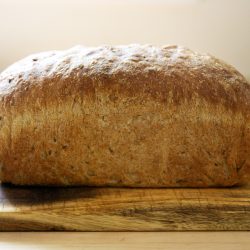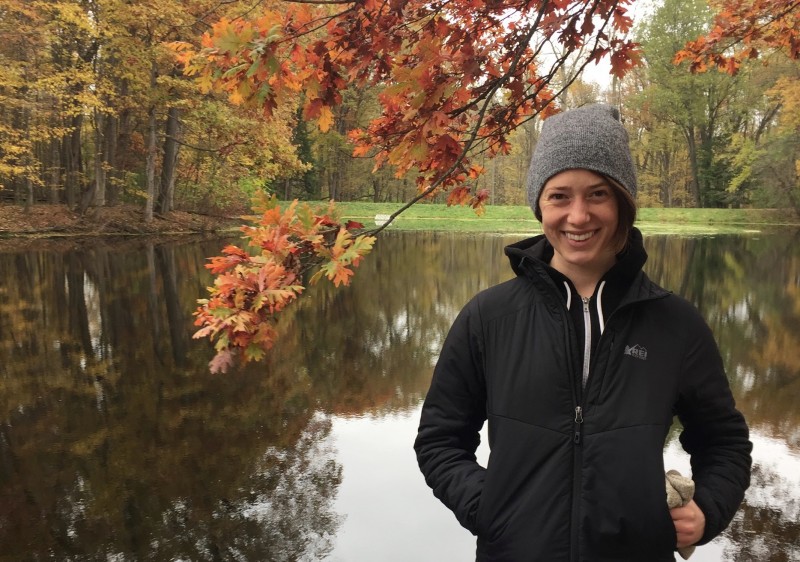
Sourcing our ingredients locally has many benefits, not least of which is literal field trips to visit our future ingredients as they grow. To this end, one June morning a contingent of the bakehouse grain commission headed west to Living Earth Farm in Sawyer, Michigan where rye is being grown for us this season. I think rye is delicious and I know our customers agree, many using our rye breads as staples in their diet each week and famously enjoying it on sandwiches at Zingerman’s Delicatessen. However, this ancient grain took a major back seat to wheat in the 1900’s when very fluffy and sweet breads became more popular. Now, though relatively easy to grow, particularly good for the soil, and hearty under a variety of weather conditions, rye is used primarily as a cover crop to improve the soil in between main crop seasons and is typically not harvested for food in the United States. Because it is no longer widespread in our state, it is necessary to work directly with farmers to access these grains whole, fresh, and from Michigan. The rye growing at Living Earth Farm is a special departure from today’s typical baking and farming and I’ve been looking forward to seeing its progress for months.
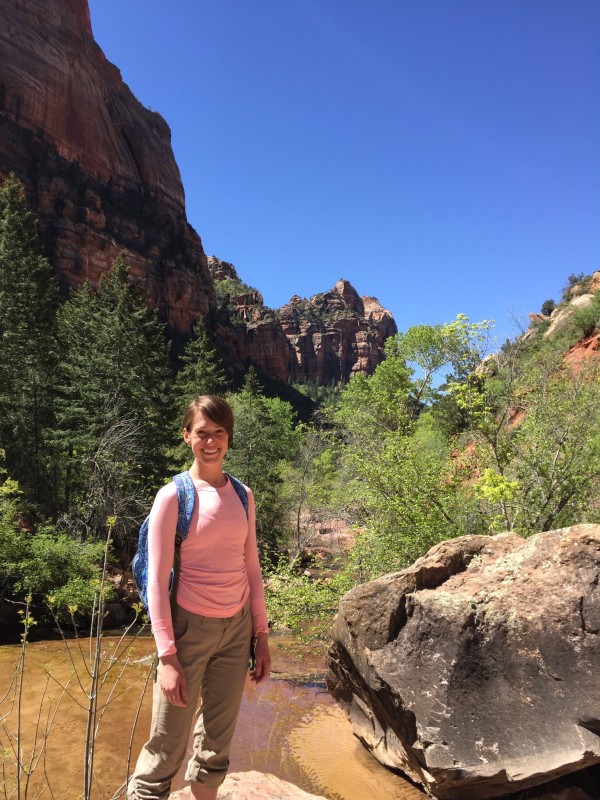
Despite my excitement, during the car ride my main focus was on not getting sick. Even car chase scenes in movies make me carsick and so this required a lot of concentration. I’m Hailey, delicate traveller extraordinare and resident ecologist and source-ress at the bakehouse. The Sourcer-ess is a title that simultaneously describes my work sourcing ingredients, fulfills my childhood dream of being a witch, and allows for other amazing bread puns such as “she’ll put a spelt on you”. I’ll take it.
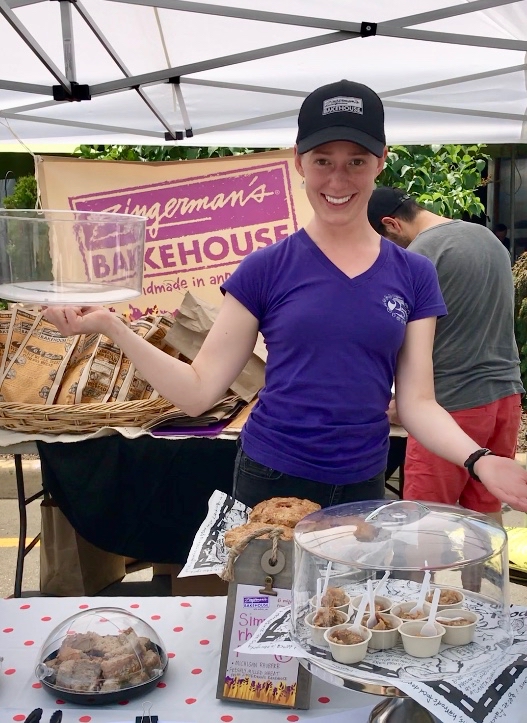
After zero carsickness close calls, a few hours and a couple pit stops later (who knew we were such a well-hydrated team?!), we arrived at our future ingredient in the making. One step out of the car and I’d never felt better and was feeling relieved that I wouldn’t have to worry about the trip home because I was definitely never leaving this gorgeous place. The rye was nearly ready to be harvested and the feeling of standing next to all that hard work and life and potential swaying in the breeze is hard to put into words. Just take it from me, I am a source-ress after all, it was magical.
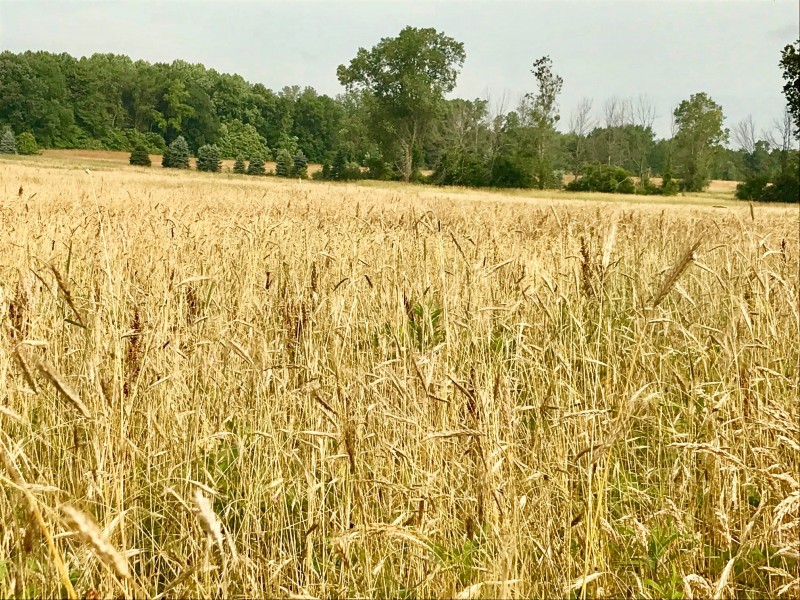
Nancy and Charles, the farm’s owners, thought the same thing when they arrived years ago, looking to move from Chicago to the retirement-worthy west coast of Michigan. They were food lovers who had owned a bagel shop in Evanston, IL, but at the time they were mostly interested in the farmhouse itself. It needed fixing up and was a project they made their first priority after purchasing the property. Soon though, they felt a growing responsibility to the 20 tillable acres that came with the house. I imagine it was that same feeling we had when we made the switch to organic all-purpose bread flour – unsure of the exact outcome but ready to follow our gut nonetheless. First, 8 years ago, they asked the farmer renting their acreage to use organic practices to grow his corn and soy. This led to interesting innovations including the use of lemon oil instead of roundup. Five years later they made the investment to become certified organic. Charles happily told us about the way, on summer nights, he watches his field glow with fireflies while his neighbors’ conventional farmland remains dark. This is an excellent metric of success because functional, diverse ecosystems are not just beautiful to watch, but benefit us all and are a happy ending I can really get behind.
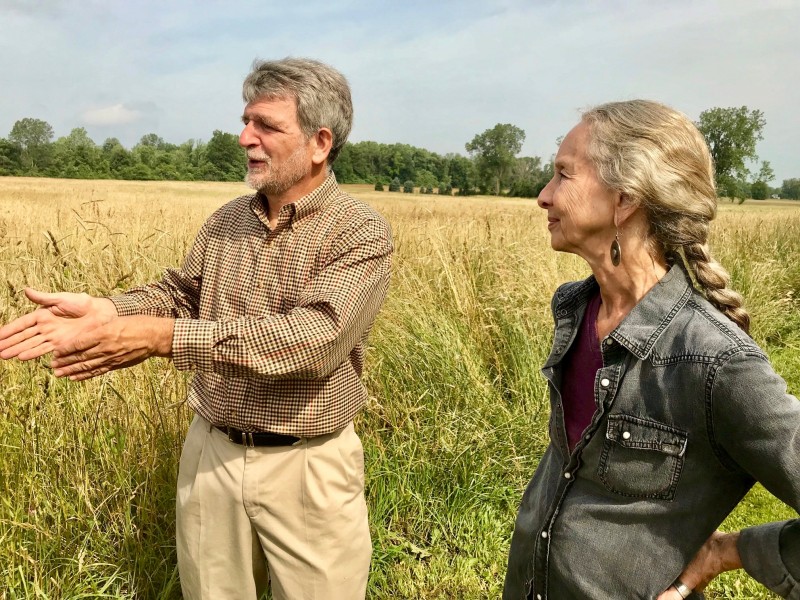
This fairy tale, like all good ones do, has some plot-twists and some dragons. Charles also told us about his desire for his farm to not just be ecologically sustainable but to be financially sustainable as well. The first year the couple planted rye its moisture levels were too high and the entire crop was un-harvestable. In general, the unpredictability of the environment can be merciless and makes farming an incredibly risky profession. This year, the rye has grown well and required very little management. The main challenge now is the lack of post-harvest systems for farmers at their scale, growing an atypical grain. The obstacles between harvesting and selling grain include laboratory testing, cleaning, proper storage, and marketing. For Charles and Nancy these challenges have been great enough that they’ve decided to rent out the land next year rather than farm it themselves. They are tired. We will share this final rye crop with Journeyman Distillery, in Three Oaks, MI. Bittersweet but delicious, this dreamy field will go out in a blaze of bread and whiskey.
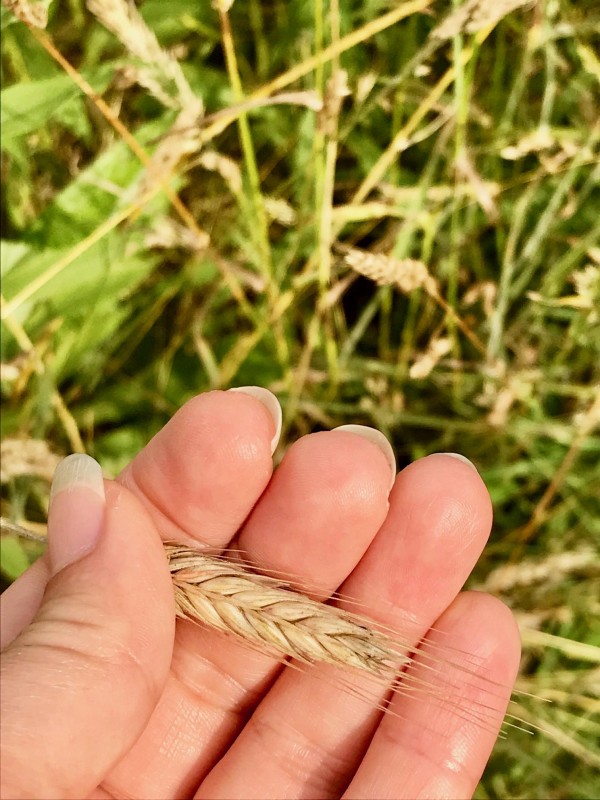
The post-harvest headache is part of the reason most farmers sell their grains to an elevator where they become an untraceable commodity processed and distributed by just a few major corporations. Rather than storing and marketing their grains, working with a distributor allows farmers to sell all their grain at once. This conventional system makes it difficult to find farmers growing diverse types of grain and willing to sell to smaller, niche markets like us. Some of the challenges of my job include finding farmers willing to work with us to do something different, understanding how we can be good partners in these somewhat unprecedented relationships, and making sure this all leads to better grains for even better bread.
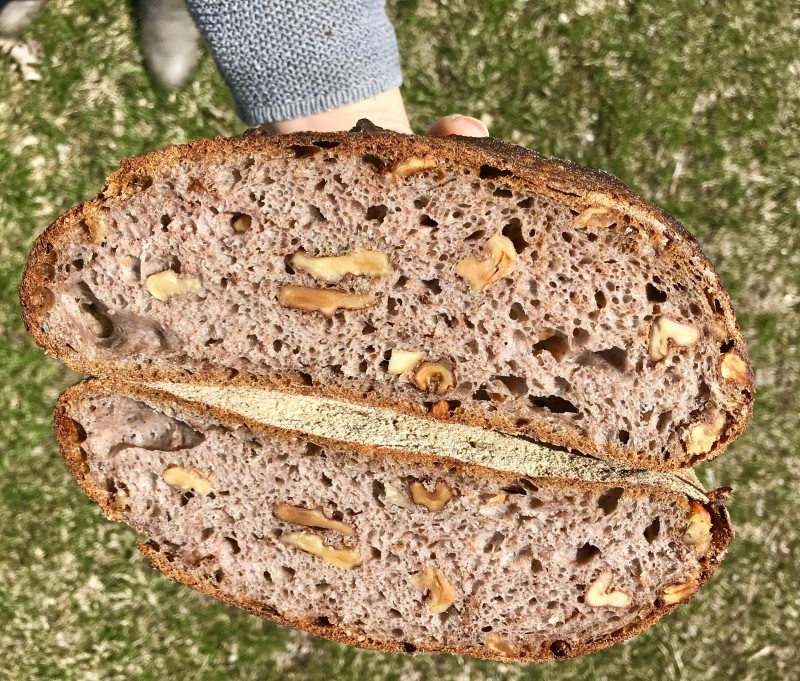
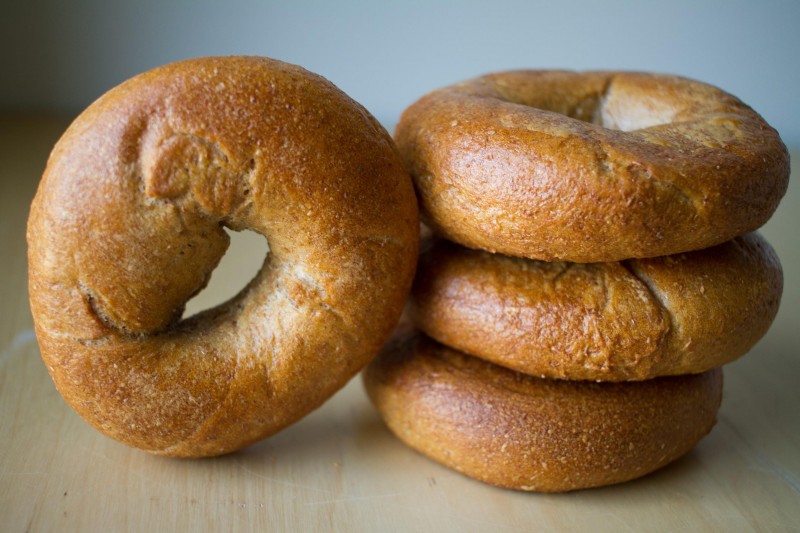
While Nancy and Charles are ready to move on, I’m grateful for this growing season we shared and we’re excited to celebrate by doing what we do best, baking. A celebration that I like to think acknowledges that yes, there will be obstacles but there will also be some fireflies to light the way and some pretty magical bread waiting at the end. Don’t take my word for it though – our mill is on its way, the rye will be harvested in late July, and you’ll be able to taste it for yourself soon enough. Stay tuned!
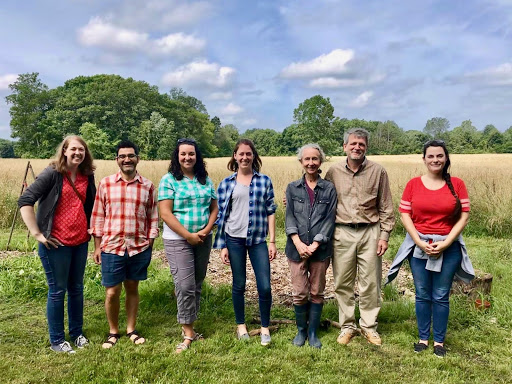
An Update
We have some sad news. Between our June visit and the upcoming late July harvest, the rye crop was negatively affected by weather, so it will not be making its way to us at the bakery. Here’s part of the note we received from Nancy “I am so sorry to tell you some bad news. The rye is mostly on the ground and we do not think there is enough rye standing to combine. We had a couple of heavy rains about a month ago—your visit came between those rains– and it really beat it down and it did not recover. I cannot tell you how disappointed I am.” We want to thank Nancy and Charles for their hard work, passion and perseverance.
To honor the work of Living Earth Farms we decided to share this story anyway, even though we won’t be able to bake with this rye. It illustrates the struggles of farming when you’re at the mercy of mother nature and the risks involved in being a trailblazer. Losing a crop has happened to us before in our quest for local grains and it will happen again. We’re not giving up.
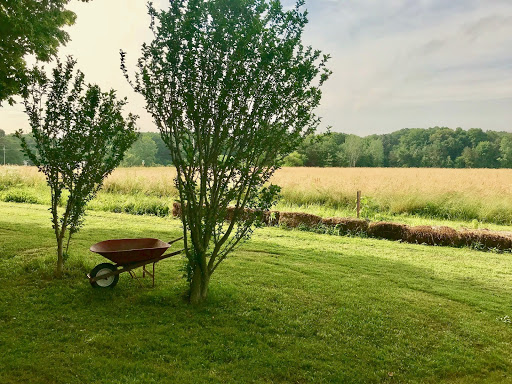
By Hailey Schurr
Bakehouse Sourcer-ess
